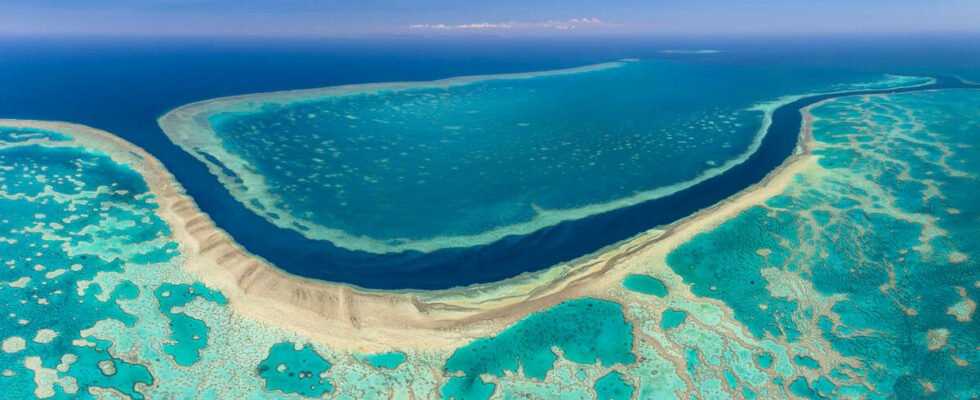Global warming
Australian Prime Minister Scott Morrison proudly announced new investments on Friday to try to save this area very weakened by global warming. While continuing to invest massively in fossil fuels.
A treatment of the effects and not of the cause. Australia unveils this Friday a financial plan of 700 million dollars over nine years to protect the largest coral reef in the world, particularly damaged by climate change. The goal: that the Great Barrier not be removed from the UNESCO World Heritage List. The reef was hit by three very severe bleaching episodes in 2016, 2017 and 2020.
A large part of this new investment plan will be dedicated to preventing the pollution of reefs by agricultural runoff. Around a quarter of the funds will go to the Great Barrier Reef Marine Park Authority “to reduce the threats posed by acanthaster starfish”, which feed on corals.
Bleaching has affected 98% of Australia’s Great Barrier Reef since 1998, sparing only a tiny chunk of the reef, according to a recent study. This serious phenomenon of dieback results in discoloration. It is caused by the rise in water temperature – a direct consequence of global warming – which leads to the expulsion of the symbiotic algae that give the coral its bright color.
“Adhesive plaster on a wooden leg”
But after this announcement by the very climatosceptic Australian Prime Minister, Scott Morrison, environmental protection associations are not very excited. The Australian NGO Climate Council describes this new plan as “sticking plaster on a wooden leg”, denouncing the double game of government and politicians on environmental issues.
“Distributing money for the Great Barrier Reef with one hand, while funding the fossil fuel industry, which is causing devastating climate impacts like marine heatwaves and coral bleaching, means that they aggravate the problem they claim to want to solve”, exasperated Lesley Hughes, member of the association and professor of biology at Macquarie University. “Unless emissions are reduced significantly over the next ten years, the barrier situation will only deteriorate.”
Although Australia has announced that it is aiming for carbon neutrality by 2050, the Australian Conservative government remains one of the world’s largest exporters of gas and coal. Political parties even receive significant funding from donors linked to the fossil fuel industries, on which the country’s economy still depends heavily.
Still, Australians seem overwhelmingly supportive of action to limit climate change after suffering a series of disasters made worse by global warming: bushfires, droughts, floods and record heat. According to a 2021 poll by the Lowy Institute in Sydney, 60% of Australians believe that “Global warming is a serious and urgent problem”. No less than eight in ten Australians support the goal of carbon neutrality by 2050.
